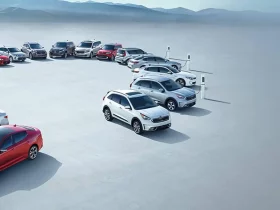Choosing the right car insurance agency is more than getting the best price. You also want to ensure that the company you choose is financially stable and will be there when you need them most.
To do this, check the consumer complaint ratios for each carrier you’re considering by visiting your state’s Department of Insurance website.
Check Their Reputation
Having an insurance agent who knows you, your family, and your lifestyle (such as whether or not you have children in the household, if you use your vehicle for work, and how far you drive regularly) helps when life events occur that could impact your coverage needs.
An agent can help you navigate the often confusing and sometimes difficult decision of modifying your policy to accommodate these changes.
Insurance agents can also provide local support during the claims process. They know body shops and glass companies in your area and can relate to the challenges you may encounter when dealing with an auto insurance claim.
Check Their Financial Stability
Considering an insurance company’s financial stability before committing to a policy is essential. After all, you’re counting on them to be around if you have a claim and to pay your claims promptly. Several private companies monitor the financial strength of insurance providers. You should also check out the state guaranty association in your area, which is similar to the FDIC for banks.
A high financial rating indicates a strong likelihood that an insurance company will be able to meet its economic obligations, like paying claims. A low rating, however, raises concern about the ability to pay claims and is a red flag.
Check Their Customer Service
When purchasing insurance, customer service is just as important as price. Working with a company that takes the time to answer your questions and provide a fast response is essential.
Securing peace of mind for homeowners involves thoughtful risk management; homeowners insurance provides a financial safety net, offering protection against unexpected events and ensuring that individuals can safeguard their most valuable asset – their home.
A good insurance agent will have experience working with the different companies they represent and will be able to offer insight from other clients’ experiences. Knowing how a company treats its customers during the claims process is also essential.
This can be determined by checking a company’s consumer complaint ratio. Many states have their Department of Insurance Web sites that will provide this information on insurers. You can also check with a national insurance complaints database. In addition, you should also make sure the company is licensed to sell in your state.
Check Their Coverage Options
When choosing to insure a vehicle, price is important, but so is the ability of the carrier to meet your coverage needs. Customer service ratings, financial stability, available endorsements, and digital tools can help you differentiate between companies.
Your local agent can help you navigate all of these factors. They can also offer insights into their experiences with each carrier they work with. However, they cannot provide a complete browsing experience because they only have contracts with limited insurance providers. This means you must do your homework and ensure you get the best value for your money. By shopping around and following these tips, you can avoid paying too much for your car insurance.
Check Their Policy Limits
Many factors go into determining the cost of car insurance. These factors include the vehicle’s make and model, driving record, and safety features. In addition, credit history plays a role in many states. In some cases, those with bad credit may pay more for coverage.
Understanding the policy limits when choosing an auto insurance agency is essential. It is not uncommon for companies to quote low levels of protection, such as state minimum limits, to attract new customers. However, those with high-value assets should consider a higher level of coverage. This can prevent them from paying out of pocket for large sums in the event of a collision. Most policies will display their limits in three numbers, such as 50/100/50.








Leave a Reply